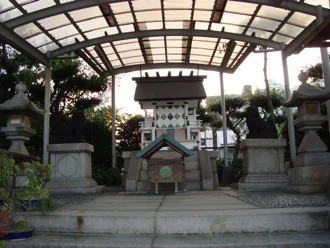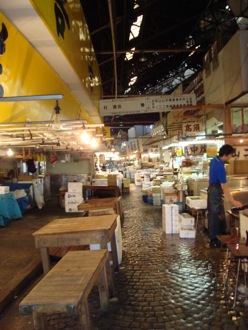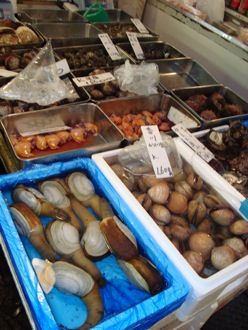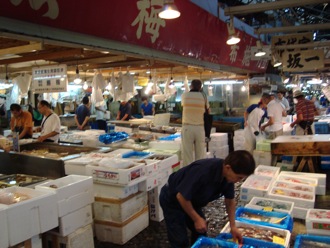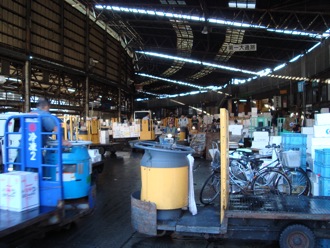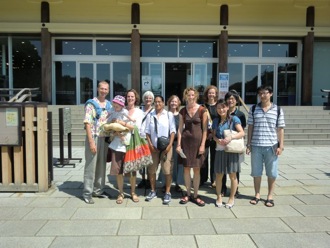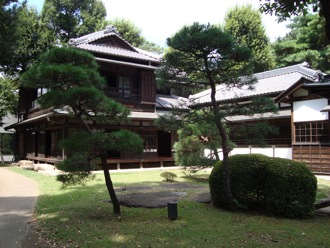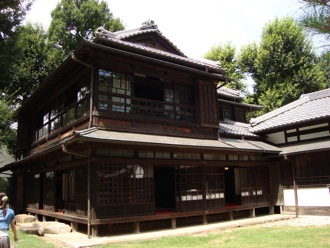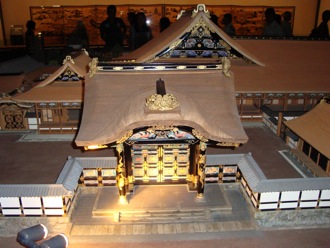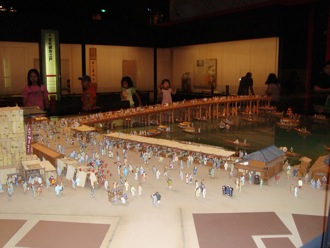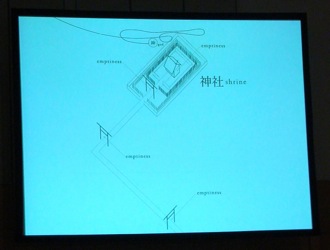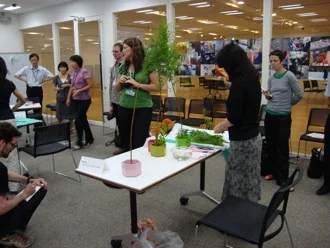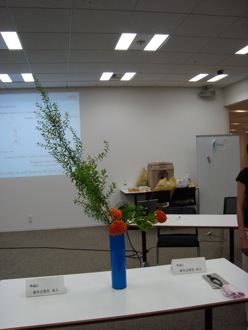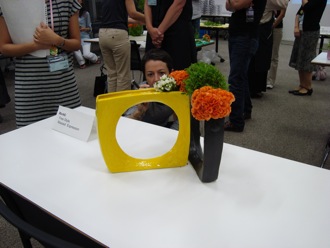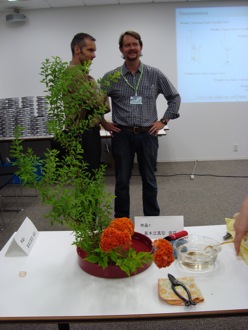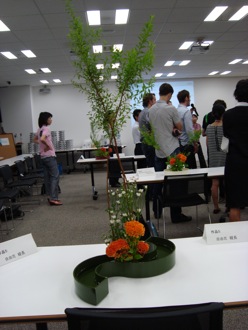Jacob Buur and I visited the Tsukiji fish market at 4:30 in the morning. Tsukiji is the largest wholesale fish market in the world. Took a taxi – amazingly clean and with lace seat covers!
We were too late to get tickets to the day’s tuna auction at 5 am. However, we wandered around and were able to enter the market from the back. At the edge of the market was a shrine.
The fish market itself was fascinating! Everyone was super busy. Many men rushed around moving fish, often on little electric carts. We had to be careful to stay out of their way. We saw an amazing variety of sea creatures. Also men expertly carving up large fish with special knives.
Around the edges of the market were little stores that sold fish-related supplies (like knives) and fish products (like dried fish). There were also little sushi bars. We had sashimi for breakfast at one of these. The food was outstanding!
In the afternoon, I attend the EPIC Pre-Conference. There were four presentations by well-known folks in the field, to introduce the concept to Japanese students and business leaders.
In the evening, I was fortunate to be taken to dinner by Naoki and Keiko Endo, the parents of Shino Endo, who is a master’s student at UNT. The Endos were super nice and interesting (as well as being very generous to me), and I enjoyed talking to them about shared interests. Through them, I was able to discover a side of Japan that is only accessible to people with Japanese language skills. We went to a restaurant in Ginza, where they plied me with amazing foods. Everything was delicious, and I loved trying new dishes I had not seen before – from a spicy Korean dish to fish cakes to sashimi. Afterwards, they took me back to my hotel in Roppongi, and we visited an interesting sake bar on the way. At the bar, we were given our own little room with sliding doors, and sat Japanese style on tatami mats. The waiter was dressed in traditional clothing. Among other delicacies, we got huge grapes that were artistically peeled, like origami. The whole evening was a wonderful experience.


